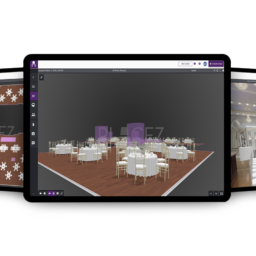In the bustling world of event planning, crafting unforgettable experiences demands more than just a flair for creativity and organization. It’s about forging strategic partnerships and collaborations that elevate your event from good to great. Understanding how to leverage these relationships is crucial not only for seamless execution but also for maximizing reach and impact.
This post is tailored for event planners, marketing professionals, and venue owners eager to harness the power of partnerships to ensure event success. We’ll explore why collaborations are essential, how to select the right partners, and ways to nurture these relationships for long-term success. Whether hosting a small gathering or a large-scale conference, this guide will equip you with insights, strategies, and practical tips to create memorable events.
The Power of Partnerships in Event Planning
Harnessing the power of partnerships can significantly enhance the success of your event. Collaborations enable you to tap into new audiences, resources, and expertise that can improve your event’s quality and reach. By joining forces with like-minded partners, you can offer attendees a richer, more engaging experience.
A strategic partnership can provide access to additional funding, creative ideas, and logistical support. It’s not just about sharing resources; it’s about combining strengths and expanding your event’s potential. For example, collaborating with a tech company might bring cutting-edge technology to your event, offering a unique experience for attendees.
Furthermore, partnerships can help mitigate risks. When you partner with other reputable organizations, you share the responsibilities and risks associated with the event. This collaboration can lead to a more balanced workload, ensuring that no single entity bears the burden. In doing so, you can focus on delivering a successful event that meets your shared objectives.
Identifying the Right Partners
Choosing the right partners is critical for the success of any event collaboration. Identifying organizations or individuals whose goals align with yours is essential for ensuring a mutually beneficial relationship. Consider potential partners who can fill gaps in your resources or expertise.
Research is vital to finding the right fit. Look for partners who have a proven track record of successful collaborations and who share your vision for the event. This might include industry associations, local businesses, or other event planners who can provide complementary services.
Once you’ve identified potential partners, it’s crucial to establish clear expectations and goals from the outset. This includes defining roles, responsibilities, and contributions each party will make. Setting these parameters early helps ensure a smooth and successful collaboration.
Building and Maintaining Relationships
Building solid relationships with your partners is vital to achieving event success. Trust and communication form the foundation of any successful partnership. Regular meetings, open lines of communication, and transparency in decision-making processes are all essential.
Invest time getting to know your partners and understanding their needs and expectations. This mutual understanding helps foster a collaborative environment where everyone feels valued and motivated to contribute. Establishing trust and rapport will encourage partners to invest fully in the event’s success.
Maintaining relationships beyond a single event is equally important. Follow up with partners after the event to gather feedback and discuss future collaborations. Demonstrating appreciation and willingness to learn from the experience will strengthen the partnership and pave the way for future success.
Leveraging Technology in Collaborations
In today’s digital age, technology is crucial in enhancing collaboration. Utilizing digital tools and platforms can facilitate seamless communication and streamline event planning processes. From project management software to virtual meeting platforms, technology enables efficient coordination among partners.
Consider using collaborative software like Trello or Asana to manage tasks and timelines. These tools provide a centralized platform where all partners can track progress, share updates, and address issues. This level of transparency fosters accountability and ensures everyone is on the same page.
Additionally, technology can amplify your event’s reach. Collaborate with partners on social media campaigns, digital marketing strategies, and virtual event platforms to engage a wider audience. By leveraging technology, you can enhance your event’s overall success and impact.
Creative Collaborations for Unique Experiences
Creative collaborations have the potential to elevate your event by offering unique and memorable experiences for attendees. Think outside the box and explore partnerships with artists, performers, or cultural organizations that can add excitement and engagement to your event.
For instance, partnering with a renowned chef for a culinary event can provide attendees with an unforgettable dining experience. Alternatively, collaborating with a local artist to create custom installations or performances can leave a lasting impression. These creative partnerships enhance the overall atmosphere and make your event stand out.
Such collaborations also offer opportunities to showcase local talent and culture, adding authenticity and depth to your event. By tapping into your partners’ creativity, you can craft an experience that resonates with attendees and leaves a lasting impact.
Financial Benefits of Strategic Partnerships
Strategic partnerships can provide significant financial benefits for your event. Collaborating with sponsors or co-hosts can help offset costs and increase your budget, allowing you to allocate resources more effectively.
Sponsorships, in particular, are a valuable avenue for financial support. Identify sponsors who align with your event’s theme or target audience and offer them attractive packages highlighting the benefits of partnering with your event. In return, sponsors gain visibility and exposure to your audience, creating a win-win situation.
Additionally, partnerships can help generate revenue through shared ticket sales, merchandise, or exclusive offers for attendees. By leveraging collaborative efforts, you can maximize your event’s financial potential and deliver exceptional value to partners and attendees.
Navigating Challenges and Conflict Resolution
While collaborations offer numerous benefits, they can also present challenges. Effective conflict resolution strategies are essential for maintaining positive relationships with your partners. Addressing conflicts promptly and constructively is crucial for ensuring the success of your collaboration.
One practical approach is to establish a conflict-resolution framework before the event. Clearly outline how disputes will be managed and resolved, ensuring all parties know the process. This proactive approach can prevent misunderstandings from escalating and help maintain a harmonious working relationship.
Communication is critical when navigating challenges. Encourage open dialogue and active listening to understand each partner’s perspective. By fostering a collaborative atmosphere, you can find mutually agreeable solutions and maintain the integrity of your partnership.
Measuring Success and Evaluating Outcomes
Measuring the success of your partnerships is essential for evaluating the impact of your collaboration. Establish clear metrics and key performance indicators (KPIs) to assess whether your event met its objectives and goals.
Evaluate both quantitative and qualitative data to gain a comprehensive understanding of your event’s performance. Metrics such as attendance numbers, social media engagement, and revenue generated provide valuable insights into the success of your collaboration.
In addition to data analysis, feedback from partners and attendees should be gathered to identify areas for improvement. This feedback loop allows you to refine your strategies and optimize future collaborations for more tremendous success.
Harnessing Community Engagement
Creating a sense of community among your event attendees fosters engagement and loyalty. Encourage networking opportunities and interactive sessions that facilitate connections among attendees and partners.
Collaborate with partners to host meet-and-greet sessions, panel discussions, or workshops that promote meaningful interactions. By facilitating these connections, you enhance the overall experience and create a supportive community beyond the event itself.
Engage with your audience through social media platforms and online forums. Encourage attendees to share their experiences and connect, further strengthening the sense of community and extending the reach of your event.
Continuous Improvement and Future Collaborations
Continuous improvement is vital to maintaining successful partnerships and ensuring future collaboration. Regularly assess your processes and outcomes to identify areas for growth and enhancement.
Stay informed about industry trends and emerging technologies that can enhance your collaborative efforts. By staying ahead of the curve, you can adapt to changing landscapes and maintain a competitive edge in event planning.
Build on the successes of each collaboration to create a foundation for future partnerships. By nurturing relationships and consistently delivering value, you position yourself as a trusted collaborator and increase your opportunities for future success.
Conclusion
Strategic partnerships and collaborations are the cornerstones of successful event planning. By leveraging these relationships, you can create extraordinary experiences that leave a lasting impact on attendees and partners alike. Remember to choose partners whose values align with yours, nurture relationships through effective communication, and continuously evaluate and improve your strategies. By doing so, you’ll achieve event success and build a network of trusted collaborators who will support your future endeavors.















